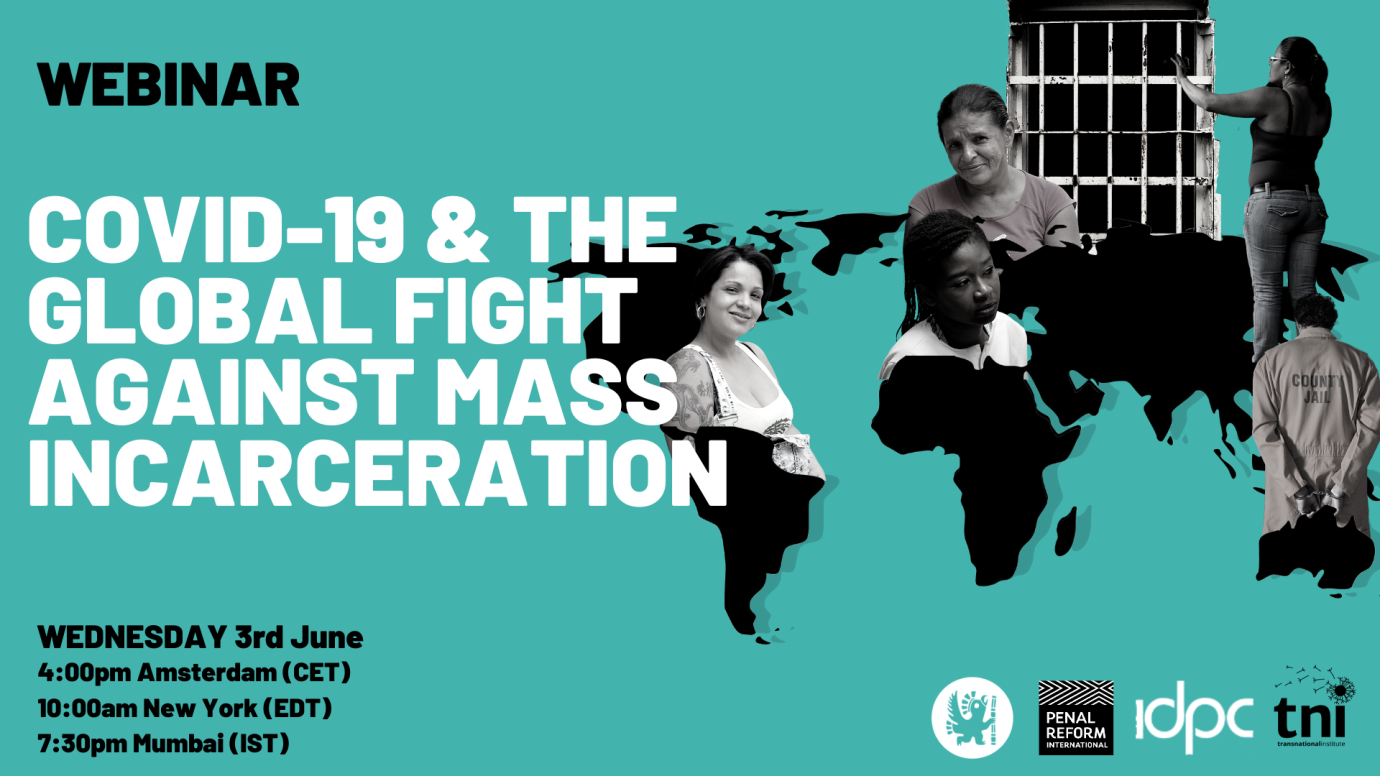|
Myanmar is one of the many countries worldwide where COVID-19 has led governments to release people from prisons. But how could we ensure that such short-term measures mark a shift towards long-term structural reform? Join tomorrow's conversation
Dear reader,
The COVID-19 pandemic has led governments to release an unprecedented number of people from prison and curb new admissions to prevent deadly outbreaks in prisons and other detention centres. The pandemic has exposed the societal costs of mass incarceration, while the quick actions taken by governments casts doubt on the necessity of imprisonment for those released.
|

|
This webinar taking place on 3 June at 16.00 CEST (09.00 Bogotá / 21.00 Bangkok) will look at the drivers of mass incarceration worldwide, sharing analysis on the impact of COVID-19, the negative impacts of imprisonment exposed by the pandemic, and the challenges and opportunities it provides for sustainable reform. It will particularly focus on the role of punitive drug policies in driving up prison numbers. Global trends show that 1 in 5 people in prison are incarcerated for drug offences - constituting just over 2 million – and almost half a million are serving sentences for drug possession for personal use. Punitive drug policies also disproportionately impact the impoverished and the most marginalised people in our societies.
Activists and researchers from different regions will discuss and share strategies by civil society to reverse this long-standing trend of mass incarceration as a response to crime. What strategies for action have been effective during this pandemic? What drug policies need to change in order to address high levels of incarceration? How can we ensure that short-term prison releases mark a shift towards long-term structural reform and an end to mass incarceration?
Register to receive more details.
4pm CEST, 3 June 2020
|
|
|
(French and Spanish interpretation will be available)
Panellists:
- Olivia Rope, Director of Policy and International Advocacy, Penal Reform International
- Isabel Pereira, Principal investigator at the Center for the Study of Law, Justice & Society (Dejusticia), Colombia
- Sabrina Mahtani, Advocaid Sierra Leone
- Maidina Rahmawati, Institute of Criminal Justice Reform (ICJR), Indonesia
- Andrea James, Founder and Exec Director, and Justine Moore, Director of Training, National Council For Incarcerated and Formerly Incarcerated Women and Girls, USA
The webinar is organised by the
Transnational Institute
and co-sponsored by
IDPC
,
WOLA
and
Penal Reform International
| |
|
|
| | | | |